- Home
- Michael White
Travels in Vermeer
Travels in Vermeer Read online
Travels in Vermeer | A MEMOIR
* * *
Michael White
A Karen & Michael Braziller Book
PERSEA BOOKS | NEW YORK
CONTENTS
Prelude [October]
Amsterdam [March]
The Hague and Delft [June]
Anne [November]
Washington, D. C. [December]
Stephanie [March]
New York [April]
How It Works
London [May]
Two Marriages
An Ending [May]
Suggested Reading
Acknowledgments
About the Author
TRAVELS IN VERMEER
She strikes you stock-still from a distance, though you don’t know how or why. For she isn’t pretty exactly, this woman busy at her work, her face downturned but angled into the light that rakes across the scene from left to right. She might be a lace-maker, or a lady of means. She might be a kitchen maid, who pours milk from an earthenware pitcher as lightly, as expertly, as if she were cradling a baby. It’s always the same room, but a different fantasy. Here she stands, at the still point of another world.
PRELUDE
[ October ]
There’s a small window cut into my front door, composed of four identical square panes with a perfect cross of slim, oak muntins dividing them. Sometimes I stand at the door, staring idly at a neighbor walking his dog outside or at the rain drizzling through the longleaf branches—slicking down my front sidewalk—or at nothing. I rest my forehead on the juncture of this cross. It dents the skin of my forehead, and is oddly comforting.
It’s already October, 2003, the grass a matte gray. The house is silent, except for the chronic ringing in my ears. If I were standing on the beach five miles away, I might notice how the glass-green rollers, folding over the offshore sandbars, have turned slate-gray. I might notice how the currents, plying the lap of sand, have switched from south to north and the surfers have donned their wetsuits. But I haven’t been to the beach for months. Here, in downtown Wilmington, North Carolina, the pines are releasing their summer needles: drifts of blonde straw are piling up on the slopes of my roof and snuffing out what little life remains in the lawn.
I’m in the midst of a bad divorce, and have nearly lost what’s left of my wits trekking from lawyer’s office to courtroom to mediation to counseling and through all the blank space in-between. Nearly all the anxiety on my end has to do with my daughter, Sophia, who is only three. Sara—my beautiful, considerably younger, estranged wife—has a shark of a lawyer and is seeking full custody.
Turns out I’m not quite the man I thought I was. The one who dealt with his alcoholism half a lifetime ago and still keeps up a contented and continuous sobriety. The devoted husband who stood beside his first wife through her battle with cancer; who did all he could to help her pass with courage and dignity. The poet who earned his doctorate, published books, stubbornly found his share of success. The passionate, popular, outdoorsy, “cool” professor. I’m not sure where that guy, any of those guys, went. At home, there are convulsive fits of sobbing, once or twice a day, and I am taken aback by how long this lasts. At the university where I teach, a lingering sensation of falling dogs me in the halls. Friends have taken sides. Department meetings are dreadful. But I still manage to pump myself up for classes. I still gladly lose myself in the earnest faces of students, trying to inspire them.
Now it’s Saturday, two weeks after the temporary custody hearing. It’s only the first step in what, in North Carolina, is a yearlong process, but so far nothing seems to be going my way. I’d wanted a fifty/fifty custody split; what I got is the traditional every-other-weekend visitation. I’m sitting in my armchair, in a colorless, dreamless haze of therapist-recommended Lexapro, staring at my own feet, when a loud knock jolts me out of my skin. I rise, furtively, in order to steal a glance through the door without being seen. It’s Sara: a whiff of beauty in the frame. I think: No. Another curve-ball. Because my divorce is crazy and bitter and acrimonious, and because the stakes (my relationship with my daughter) are high, there’s safety in distance, in a locked door. I sit back down. But, a moment later, she knocks again—a cordial but slightly impatient rap. I start to get up, then sit back down, and cross my arms.
Suddenly, I realize the door isn’t locked so, staying low, I make it the three steps to the doorknob in the same instant it begins to turn. I’m fumbling with the chain too late as she pushes the door open about a foot until it stops against my right knee. Then I peer through the little square window.
Sometimes, time speeds up: not just an hour, but months flash past. Other times, it stops—the weight of everything, past present future bearing down. One thing I know: in the time it takes to open one’s mouth, to reach for the dangling chainlock, what happened or would happen in court in the minds of others doesn’t count, what happens now is what counts.
Here’s what I see. Sara in a black raincoat, hair cut in a sharply angled pageboy—dyed a richer shade of black, her huge brown eyes outlined dramatically, her lips a flame-red jolt against the gray world. She’s holding a fresh-baked vanilla custard pie in each hand. When she catches my eye, she raises one pie up next to her ear, so I can see it clearly: See? Then she nods for me to let her in.
I realize that the language of this encounter—pies and lipstick, raincoat absurdly open on the lightly freckled swell of her breasts— might seem like some sort of joke. Maybe it’s even outrageous, a cliché, for this to happen weeks after she left me amid a flurry of scandalous accusations. But it’s dead serious for me.
I’d always done most of the cooking, but one thing Sara had done for five years in the kitchen is ply me with desserts. I didn’t really have a sweet tooth at first, so it was sport for her. She spent years whipping up crunchy Christmas toffees, gooey brownies, frothy coconut macaroons for me, but when it turned out that I couldn’t be trusted alone in the same room with a simple vanilla custard pie—for there’d be nothing left but a few crumbs on the counter—that was a triumph.
As for the raincoat. Our relationship might be dysfunctional, absurd, and riddled with clichés, it might swallow its pride and show up with a pie in each hand, but when we made love, we made love, and we did it body and soul. We’d rowed across long summers, years of darkness—headboard battering potholes into the plaster wall behind it, sheets drenched in the Carolina mugginess which she had loved to let in—years of love that cannot be unmade. Such a fleeting dream of eternity: seen only in glimpses, flights beyond ourselves until we fell gasping into each other’s arms.
Then she starts to push open the door. “Sara?” I say, puzzled, as she puts her weight into it hard. I’m bracing my hip to meet her. “Wait,” I say, though of course I don’t mean wait, I mean stop. She manages to jam her shoe through the door, then most of her leg, so I relent a little: I don’t want to hurt her. I hold all my weight on the door, and I know she can’t budge it, but I try not to push back any more than necessary—not an easy thing to do. She shoves back hard a couple of times anyway—my mind spinning a zillion miles an hour, trying to take it in, react correctly—this beautiful, panicky girl in trench coat, bearing her considerable gifts on a blasé, brown-grass day, one long leg muscling through her former front door, with a golden, cellophane-covered, still-warm pie in each hand. We’re locked for a good half-minute in this pantomime. I can smell the cinnamon mixed with Sara’s own orchidaceous scent. Then she gives up, pulls back her leg through the door our former friends once entered without knocking, and I slam it and set the chain to be sure.
For a few seconds, through the window, we read each other’s eyes. Despite everything, all the manipulations of our divorce, the somewhat irrelevant boyfr
iend (who’d hang up when I happened to answer), what anyone dignified or rational would think about the attempt she is making, I truly feel for her. I wish I could let her in. I want to let her in; in another moment, I think, I will do it. I’ll ask her to sit down, brew coffee, and cut pie for us both. I’ll ask what’s on her mind.
I lean my forehead against the cross. Today, in this dreary light, Sara is irresistibly lovely. I remember the day our daughter, Sophia, was born. When the nurse announced, “It’s a girl,” I danced—unselfconsciously, for once—around the room in the flapping hospital gown. In the moments after, the nurse preparing to clean her up, Sophia lay quietly on the table. Not a peep. Then, cautiously, her tongue snaked straight up out of her mouth, and made two or three tentative circles in the air. Testing, tasting the atmosphere. Sara was exhausted, her eyes unfocused beneath dank bangs. Within the half hour, by prior agreement, I went out for two-dozen gooey-hot Krispy Kreme doughnuts, which we gobbled up with cold white milk before the new mom slept for twelve straight hours.
Of course, I think, she’s broken up with the new boyfriend, so she’s here to reclaim the life she’d so recently vacated, as if nothing much had happened. What is your problem? she seems to convey with a childishly scrunched pout: Just open the damn door!
I don’t show it, I keep my expression deadpan, but I’m torn with hope, with hurt. If she says, I’m sorry, I decide, I’ll open the door. I will. I watch intently, waiting. Say it.
For years I’ll imagine this moment, dream of it, maybe for the rest of my life.
She bends down at the foot of the door, the squeaking storm door still propped open by her hip. Then she rises, steps free, looks me dead in the eye again, and turns. I watch as she strides across the grass to the grayish Accord that was once ours, gets in, drives off. I keep looking, my thoughts racing: What just happened? What did I do?
I stand for a long time, forehead pressed against the cross in the window. Then I open the front door. Holding the storm door open a few inches is one of the pies. The other pie is out on the porch next to some disused flowerpots. I lean down and pick up the pie at my feet—still warm and fragrant—though I know I won’t be able to eat it. I leave the other pie where it is for now.
On Monday morning, I meet with my lawyer, Jim L., to “go over,” as he says, “the rest of it.” I can’t get used to his office: a splendidly dark and glossy leather-and-mahogany sanctuary, where he spends his days forever in the eye of a storm. When I tell him about Sara coming with pies, how I didn’t let her in, he proclaims, “Good!” His tone is simultaneously decisive and relieved. It’s as if we’d dodged a bullet.
On Tuesday morning, I meet with Tracy, my counselor, as usual. Her office is a converted back porch, with leaded windows all around. My seat is a pew-like bench, strewn with huge, loose pillows, which I can hunker down in for one blessed hour each week. There’s a catalpa tree out back I like to gaze at, the kind with long brown pods that crack each spring and release their spinning, double-winged seeds in any bit of breeze. When I tell her about the pies, Tracy beams, says, “Good! Thank God.” But it’s not as if we’d dodged a bullet. It’s as if we’ve made great progress
As for me, I’m not so sure. I wonder if I’ll ever be sure. Whether love is uplifting or not, is healthy and sane and wholesome or not, it’s still the threshold of eternity, the closest most of us ever come. How can we walk away from it?
AMSTERDAM
[ March ]
1. Traveling
It’s spring break. I’m standing in front of Amsterdam’s Central Station, a little to the side because of the throngs flowing in and out. I watch trams filter toward me through an overhead space of wires and suspended lamp globes. They gather before the station, drop off a few people, and pull away to the right. I take my time. I’m jetlagged in the pale mid-morning. The ocean at my back, the city rays out all around, a baroque skyline of marquees, towers, and gilt domes wrapped around the center, where I stand with nowhere in particular to go.
What am I doing here? Back in Wilmington, with the first big court date for my divorce looming, all I’d wanted was an ocean behind me. But now that I’ve cashed in my Frequent Flyer miles, flown all night and disembarked at Schiphol, I suddenly wonder why I’ve chosen Amsterdam. It seemed to make sense a few days ago. It was one of the few great European cities I’d never visited. I’d always imagined it as Oz, although crisscrossed with canals.
Maybe it was an escapist fantasy that guided me here, or perhaps some deeper instinct. In any case, my life is about to change and by an unexpected route: through looking at old Dutch paintings. I have never formally studied art, but I’ve always loved to look at it. And as a young boy, I habitually lost myself in artistic efforts: drawings and watercolors, landscapes and seascapes. Sometimes I wonder if I might’ve become an artist, rather than a writer. In any case, I knew Amsterdam’s Rijksmuseum was the home of many Rembrandts. But Rembrandt won’t figure in my story; the transformation ahead of me will come courtesy of Johannes Vermeer.
I step out into the flow of crowds slowly drifting from square to square. In a corner breakfast bar, I choose a round stroopwafel from a glass decanter, dip the caramel-filled edge of it into black coffee, munch dreamily for a moment, then pocket the rest for later. I buy a canal tour-boat ticket—then climb into the long, bus-like contraption that barely slithers beneath each hump-backed sandstone bridge. We trace the rings of canals—the Kaizersgracht, the Prinsengracht—around the arc of the city. I look where I am pointed to look: There is the door of the Anne Frank House. There, at the corner, is the Westerkerk. See the yellow royal crown on the tower? There is the—
After only a few minutes, I start to grow weary of looking at the city like this, so I disembark at one of the stone landings, heavily climb the steps and cross a street. Almost immediately, I’m lost in the emerald vastness of the Museumplein, my backpack seemingly filled with rocks. A reflecting pool as long as a football field, a Ferris wheel beside it; the opera house and the Rijksmuseum lined up to face each other from afar at either end. The main gate of the Rijksmuseum is fenced off for renovations. I circle around to the temporary entrance on one end, and note tomorrow’s visiting hours, nine to six.
I head back toward the center of this city of bridges, each arching its back beneath me as I cross. Atop each bridge, the black iron railings torque like tortuously braided tree roots. Down along the Flower Market on the Singel, barges and stalls with baskets of blossoms—a little early for tulips, but here are the deep-lit hues of crocuses and daffodils. I ghost through half-real squares with working jugglers, mimes, and every sort of street life or street theater imaginable.
Dog-tired at the center of town, my elbows propped on yet another bridge-railing, I gaze down yet another canal. Here, I’m transfixed by the lovely reflections, caught in the black waters, of the magenta fluorescent tubes that outline the windows on both sides. Evening throngs mill through the chill March air, past wigged mannequin displays in fetish boutiques, coffee shops, and the upscale live-sex theaters. De Wallen. Here and here and here are the window girls, done up as satin black thong fantasies, or as schoolgirl-plaidskirt fantasies, or simply as generic blondes. Some sway or swish to their iPods, half-heartedly baiting the waters, hands braced at the corners of the window frames. Some sit on pedestal stools while talking on cells or smoking. Here is a middle-aged fraulein in garters, with a crop tucked under one arm and an open sneer for every son-of-a-bitch who passes.
It’s the fleshpot of fleshpots, a stone’s throw from the harbor, so even the drunkest sailor couldn’t miss it. But there are no drunken sailors now.
With surprising clarity, I remember certain scenes from my years in the Navy–paradise alleys in the depths of San Juan, Rota, Barcelona, all of the classic Sixth Fleet liberty ports. I had left my father’s house, in Columbia, Missouri, the day after high school graduation, drifted for a few months, worked odd jobs in the Rockies, and then enlisted. It’s difficult enough to simply be eighteen, but
when you’re eighteen and knotted up within yourself in the foul, hot hold of a steam-driven ship for months on end, those smoke-filled mercies—brothels and hovels stocked with neighborhood-sweetheart, twenty-buck whores—shine bright in the mind, like the final proof of God.
I remember riding the liberty launch into the Bay of Naples. 1975. The crew of my ship, the amphibious attack ship USS El Paso, had just rescued a thousand American civilians from the siege of Beirut. First, we spent a month anchored off shore in mined waters, waiting for negotiations that ultimately broke down. Suddenly one night we got the call, and went in thundering fast and hard with landing craft. A small band of Marines picked up the Americans in front of the embassy, and led them in single file down to the boats. From there, we delivered them—crowded on every deck, like anxious immigrants, each with a single suitcase—to Cyprus. It was our moment, our single, incandescent moment. Gerald Ford telephoned—patched in live, on the intercom—to thank us.
Then we approached fleet landing, under a flame-clear sky, bouncing through a little harbor chop. We could see the queue of girls on the pier, dolled up in heels and fishnet in broad daylight, late sun shadowing the immolated backdrop of Castel Nuovo. To the victors go the spoils.
Now, on the bridge, in this other liberty port, I hear a titter from behind as two women pass arm-in-arm. Normal, urban ladies, with scarves and topcoats. “Oh no, you would not,” one says. “Would so.” They are Brits, about my age. They’re starting to gray but are still spritely, you might say, enjoying themselves immensely. Girls’ night out.
For me, what the red lights of De Wallen signify is theme-park or “cultural tourist” lust and, charming as it is, there’s little heat in it, for me. I’m far more tempted by the clink of glasses, laughter from every corner brewpub. I’m imagining a frothy swallow of Heineken, so I keep moving, moving, shivering, my mouth watering, and I don’t stop.

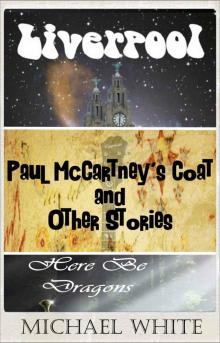 Paul McCartney's Coat
Paul McCartney's Coat The Cat Is Back!
The Cat Is Back!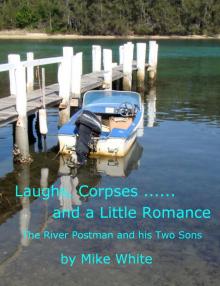 Laughs, Corpses... and a Little Romance
Laughs, Corpses... and a Little Romance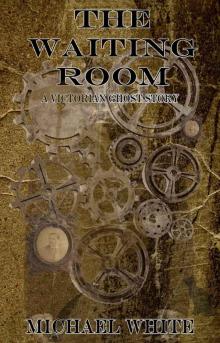 The Waiting Room
The Waiting Room Into the Light- Lost in Translation
Into the Light- Lost in Translation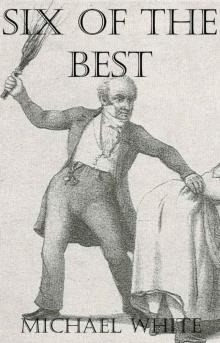 Six of the Best
Six of the Best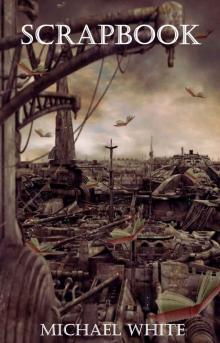 Scrapbook
Scrapbook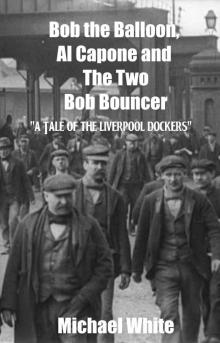 Bob the Balloon, Al Capone and the Two Bob Bouncer
Bob the Balloon, Al Capone and the Two Bob Bouncer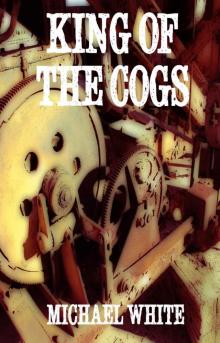 The King of the Cogs
The King of the Cogs A Bad Case of Sigbins
A Bad Case of Sigbins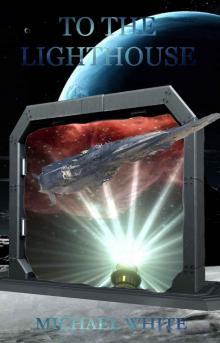 To the Lighthouse
To the Lighthouse Overboard!
Overboard!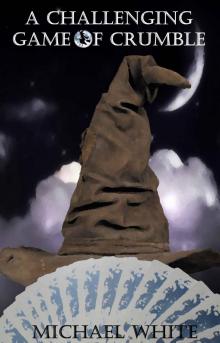 A Challenging Game of Crumble
A Challenging Game of Crumble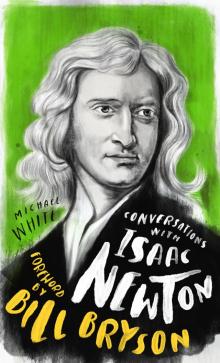 Conversations With Isaac Newton
Conversations With Isaac Newton The Complete Adventures of Victoria Neaves & Romney
The Complete Adventures of Victoria Neaves & Romney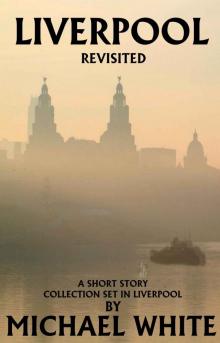 Liverpool Revisited
Liverpool Revisited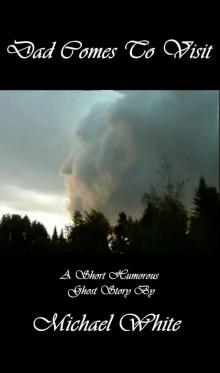 Dad Comes to Visit
Dad Comes to Visit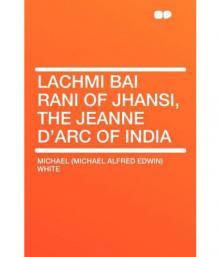 Lachmi Bai, Rani of Jhansi: The Jeanne D'Arc of India
Lachmi Bai, Rani of Jhansi: The Jeanne D'Arc of India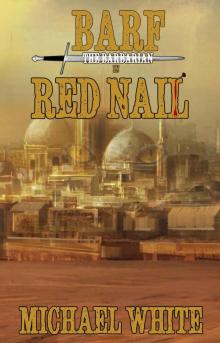 Barf the Barbarian in Red Nail (The Chronicles of Barf the Barbarian Book 2)
Barf the Barbarian in Red Nail (The Chronicles of Barf the Barbarian Book 2)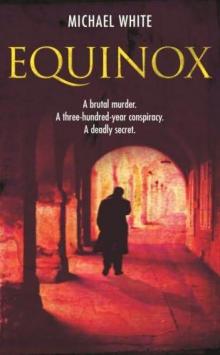 Equinox
Equinox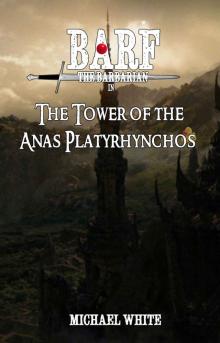 Barf the Barbarian in The Tower of the Anas Platyrhynchos (The Chronicles of Barf the Barbarian Book 1)
Barf the Barbarian in The Tower of the Anas Platyrhynchos (The Chronicles of Barf the Barbarian Book 1)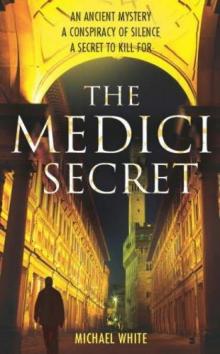 The Medici secret
The Medici secret Jack Pendragon - 02 - Borgia Ring
Jack Pendragon - 02 - Borgia Ring The Art of Murder jp-3
The Art of Murder jp-3 Travels in Vermeer
Travels in Vermeer